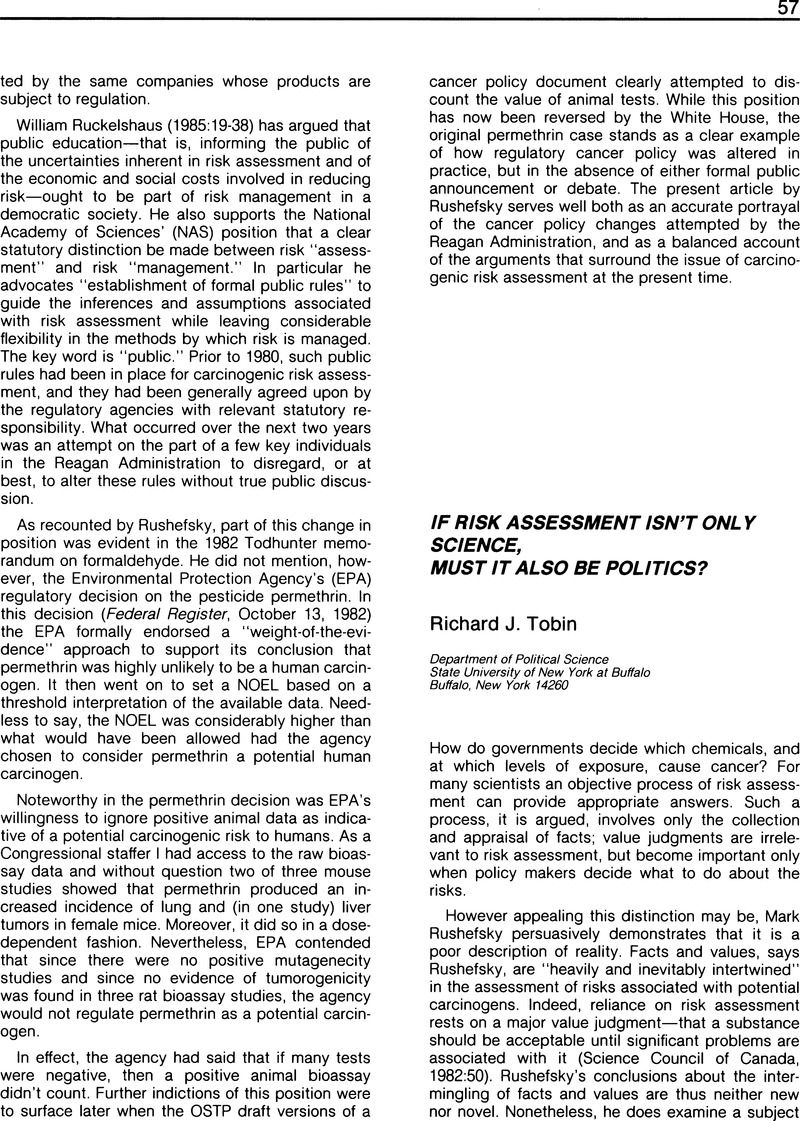Published online by Cambridge University Press: 17 May 2016

1. Nor are body counts necessarily mandates for action. As a result of data obtained through the Freedom of Information Act, the Public Citizen Health Research Group disclosed in early 1985 that the National Institute for Occupational Safety and Health (NIOSH) has long known about nearly 250 work sites whose 250,000 workers face an increased risk of cancer. Although NIOSH's officials believed that many workers could benefit by early detection, the agency had failed to notify anyone (Perl, , 1985: A1, A12).Google Scholar
2. A related issue focuses on which party has the burden of proof. Current rules normally assign this burden to victims and to those who favor remedial action (i.e., innocent until proven guilty). Hardin, Garrett (1973) advocates just the opposite—guilty until proven innocent, thus placing the burden of proof on those who wish to introduce a new chemical or product to the environment.Google Scholar